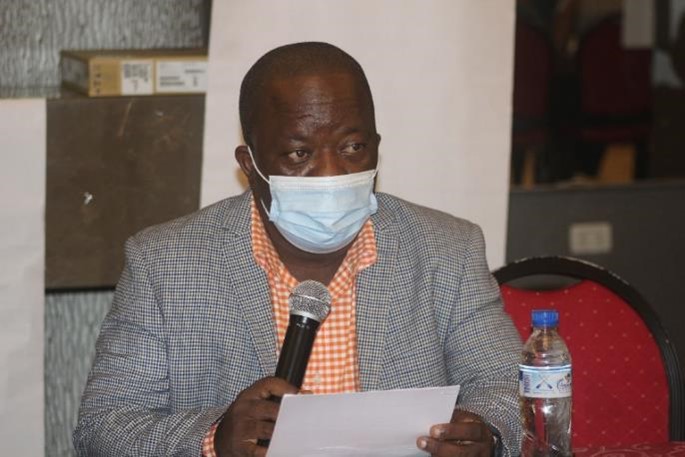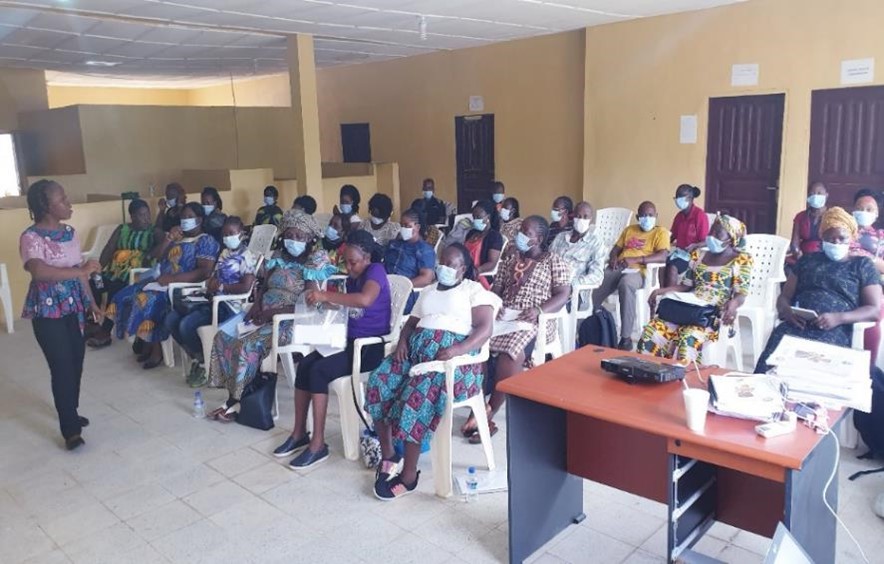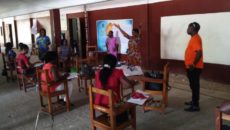MONROVIA, Montserrado – The Carter Center has begun training to prepare 360 health workers to better handle depression that women experience during pregnancy and immediately after birth.
The program is being conducted in collaboration with the Health Ministry and Montserrado County Health Team and uses the World Health Organization’s Thinking Healthy methodology.
Expected to train 240 health workers and 120 community health volunteers from 60 health facilities in the county, the WHO-endorsed intervention was initially developed in Pakistan. It employs a cognitive behavioral therapy approach to reducing perinatal depression.
The program has been shown to improve maternal health outcomes and reduce the maternal mortality rate. Liberia’s maternal mortality rate remains among the highest in the world. Maternal mental health, specifically perinatal depression, is a well-known contributing factor of poor obstetric, birth, and child health outcomes, including maternal mortality, low birth weight, stillbirth, and slowed childhood growth rate.
Giving an overview of the program during the first adaptation training in Monrovia, Benedict Dossen, the project lead of the Carter Center Mental Health Program, explained that the process of bringing the program to Liberia started with the Health Ministry and Carter Center agreeing on how it can be adapted and rolled out in Liberia. (Full disclosure: The author is a member of the Mental Health Reporters Network of Liberia, which the Carter Center supports).

Benedict Dossen, Project Head, Carter Center Mental Health Program. Photo: Zeze Ballah
“Liberia is the first African country to take the lead in adopting the Thinking Healthy program and currently has its own version,” he said.
Dossen explained that the adaptation process in Liberia involved 17 master trainers working with pregnant women for over two months to test the manual and recommend changes. Later, a three-day meeting was held with policymakers and health professionals from various health facilities and training institutions to gather their inputs. Finally, a group of pregnant women reviewed the program and provided their input on the training modules.
Dossen said stakeholders sought to ensure that the manual used culturally appropriate terms and images “for healthcare workers who will be trained to deliver the package to pregnant women and mothers to understand it well.”
About 38 percent of all pregnant women in Liberia are adolescents, according to Dr. Gorbee Gabriel Logan, the assistant minister for curative services at the Ministry of Health. Those adolescents are more likely to face mental health issues during and after their pregnancies, he said.
He thanked the Open Society Foundations and Grand Challenges Canada for funding the program.
“We are glad that the information that will come out of the validation will help us to reshape mental health activities and maternal and child health situations that are complicated in the country,” he said.

Dr. Gordoee Gabriel Logan, the assistant minister for curative services. Photo: Zeze Ballah
Also speaking during the validation event via video link was a representative from the World Health Organization in Liberia, Barkon Dwah, who said the program is good for healthcare workers in the country.
Dwah pledged his organization’s fullest support to implement the program.
In Bentol, outside of Monrovia, facilitator Patrick P. Siklor told The Bush Chicken that two separate training sessions had been held with 78 healthcare workers, 4 supervisors from the County Health Team, and 51 community health volunteers drawn across Montserrado from April 26 to 30.

Patrick P. Siklor, facilitator of the Thinking Healthy Program. Photo: Zeze Ballah
Siklor said clinicians completing the training would now take a holistic approach when attending to pregnant women. He noted that maternal depression increases the risk of maternal mortality and contributes to malnutrition cases in children.
“If a pregnant woman is depressed, the child in her uterus also suffers, and after delivery, the woman will not have the enthusiasm to care for the child,” he said.
“Out of every five pregnant women that go to attend antenatal care, three suffer from depression either cause by financial and domestic problems.”
The program focuses on getting the pregnant woman to identify her negative thoughts, replace them with healthier ones, and practice healthier thoughts and stay healthier during pregnancy, Siklor said. Health workers will also provide psychosocial education, including cognitive behavioral therapy, to pregnant women.

A Thinking Healthy training session in Bentol. Photo: Wilfred Gwaikolo
Kulubo G. Davis, a participant who works at the Tenegar Clinic in the St. Paul District in Montserrado, said she was impressed with the program. She saw its utility beyond pregnant women.
Davis said health workers often treat their patients and fail to ask them about problems that did not relate to their physical health. But the training has shown her better.
“When dealing with my patients, I will do the holistic examination and ask the right questions to help them out of their depressed state of mind,” she said.
She finds the program especially useful for Liberia because of the compounding impacts of the civil crisis, disease outbreaks, and worsening economic conditions.
Editor’s note: A previous version of this article incorrectly identified the Open Society Initiative for West Africa as a funder of the project. The article now shows Open Society Foundations as a donor.
Featured photo by Neil Brandvold/USAID



